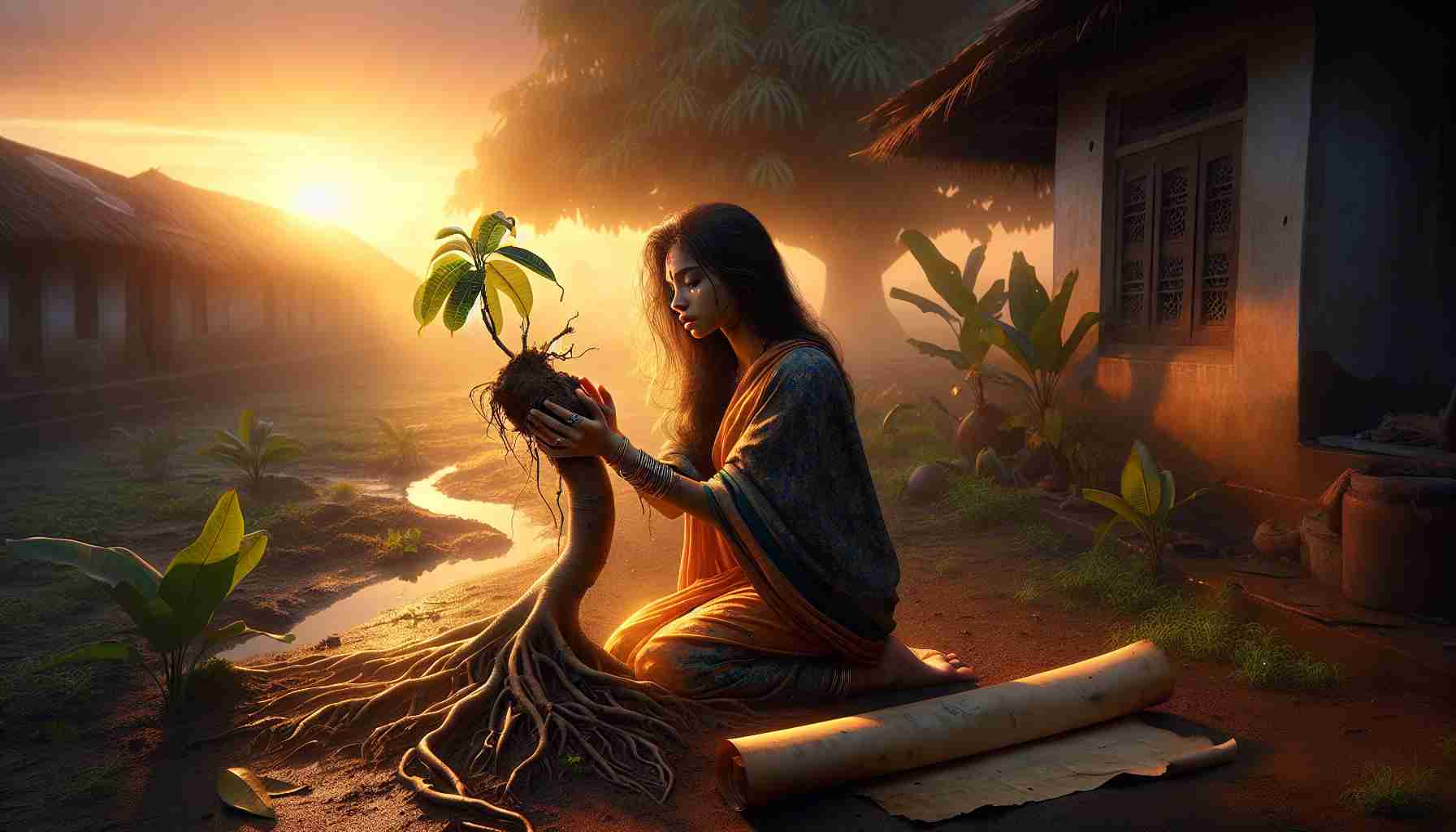

I was seventeen the first time I watched my old mango tree fall.
It had stood in our courtyard for as long as I could remember, its roots sinking deep into the red earth where my grandfather once planted it. Every summer, I would sit in its shade and dream about escaping our quiet village near Rameswaram — to dance, to study, to be more than someone’s future wife. But that tree... it was more than a tree. It felt like a part of our family. Like a guardian of every story we'd ever lived.
When the storm came that summer, it tore through our village without mercy. Roofs broke like paper, the river spilled over, and the sky roared with a voice I’d only ever heard in stories about Rudra — the fierce form of Lord Shiva, the destroyer.
The next morning, the mango tree lay uprooted. Its roots clawed helplessly toward the sky. I cried like I had lost a person.
I was supposed to leave for Chennai the next week. After two years of hiding my applications and dreams behind puja thalis and meal preparations, I’d been accepted into a classical dance academy. Bharatanatyam wasn’t just my passion — it was how I spoke to G-d. But I hadn’t told my parents. Especially not Amma. She believed good girls stayed close, like Lakshmi in every household — giving, serving, quiet.
Standing over the broken tree, holding splinters of its bark in my palm, I remembered a verse from the Bhagavad Gita (2.20): “The soul is neither born, nor does it ever die... it simply passes on to another body.”
And I whispered to the tree, “If you had the courage to fall, can I have the courage to rise?”
That night, I knelt on the crumbly earth where the roots had been. The soil felt warm. Alive. As if something beneath it still pulsed with memory.
In the Upanishads, my grandfather once told me, it says “As is the seed, so is the fruit. As is the thought, so is the deed.” I had planted so many silent thoughts — of fear, of longing, of doubt. Maybe it was time to plant something braver.
I showed Amma the acceptance letter the next day. Her eyebrows lifted, but she said nothing. She made tea. Quietly. She handed me a cup and said, “The tree is gone. But its fruits — they will return someday.”
That was her way of blessing me.
In the Ramayana, Sita walks through fire to prove her purity — not for others, but for what she believes is right. I thought of her as I boarded the bus that week.
Letting go made me feel like I was breaking. But something inside me knew — the soul wants to grow. Not cling.
And like the spring that still hums under our dry well, grace waits beneath the broken places.
You just have to trust the rebirth inside you.
I was seventeen the first time I watched my old mango tree fall.
It had stood in our courtyard for as long as I could remember, its roots sinking deep into the red earth where my grandfather once planted it. Every summer, I would sit in its shade and dream about escaping our quiet village near Rameswaram — to dance, to study, to be more than someone’s future wife. But that tree... it was more than a tree. It felt like a part of our family. Like a guardian of every story we'd ever lived.
When the storm came that summer, it tore through our village without mercy. Roofs broke like paper, the river spilled over, and the sky roared with a voice I’d only ever heard in stories about Rudra — the fierce form of Lord Shiva, the destroyer.
The next morning, the mango tree lay uprooted. Its roots clawed helplessly toward the sky. I cried like I had lost a person.
I was supposed to leave for Chennai the next week. After two years of hiding my applications and dreams behind puja thalis and meal preparations, I’d been accepted into a classical dance academy. Bharatanatyam wasn’t just my passion — it was how I spoke to G-d. But I hadn’t told my parents. Especially not Amma. She believed good girls stayed close, like Lakshmi in every household — giving, serving, quiet.
Standing over the broken tree, holding splinters of its bark in my palm, I remembered a verse from the Bhagavad Gita (2.20): “The soul is neither born, nor does it ever die... it simply passes on to another body.”
And I whispered to the tree, “If you had the courage to fall, can I have the courage to rise?”
That night, I knelt on the crumbly earth where the roots had been. The soil felt warm. Alive. As if something beneath it still pulsed with memory.
In the Upanishads, my grandfather once told me, it says “As is the seed, so is the fruit. As is the thought, so is the deed.” I had planted so many silent thoughts — of fear, of longing, of doubt. Maybe it was time to plant something braver.
I showed Amma the acceptance letter the next day. Her eyebrows lifted, but she said nothing. She made tea. Quietly. She handed me a cup and said, “The tree is gone. But its fruits — they will return someday.”
That was her way of blessing me.
In the Ramayana, Sita walks through fire to prove her purity — not for others, but for what she believes is right. I thought of her as I boarded the bus that week.
Letting go made me feel like I was breaking. But something inside me knew — the soul wants to grow. Not cling.
And like the spring that still hums under our dry well, grace waits beneath the broken places.
You just have to trust the rebirth inside you.